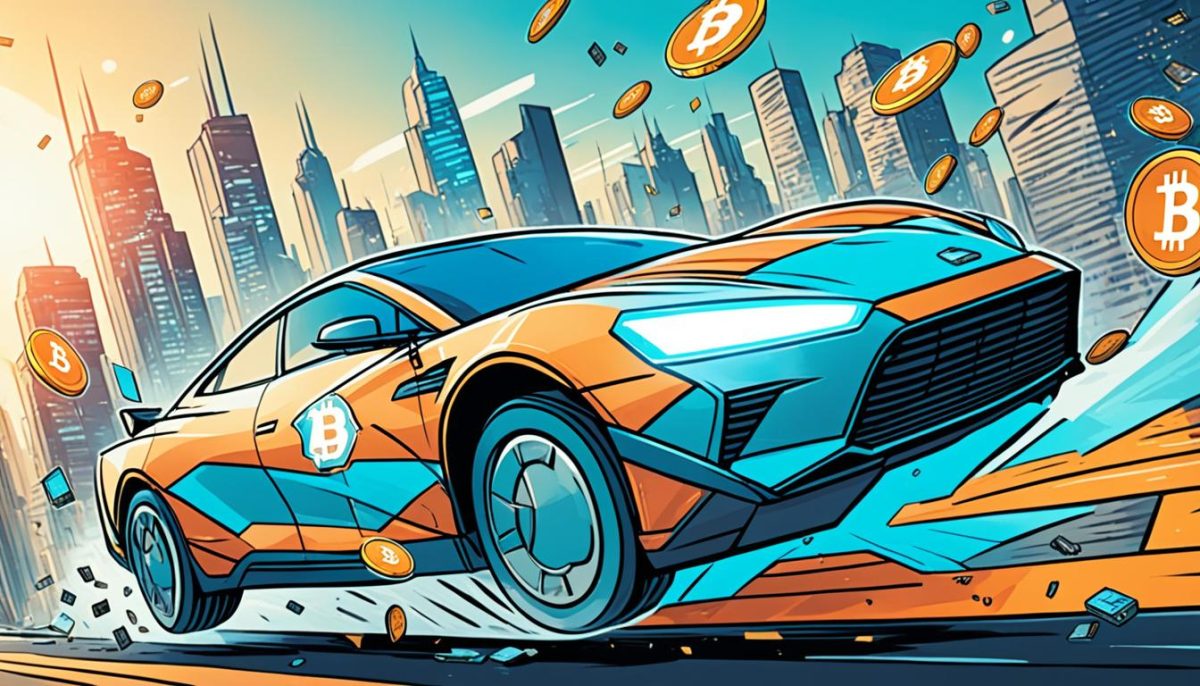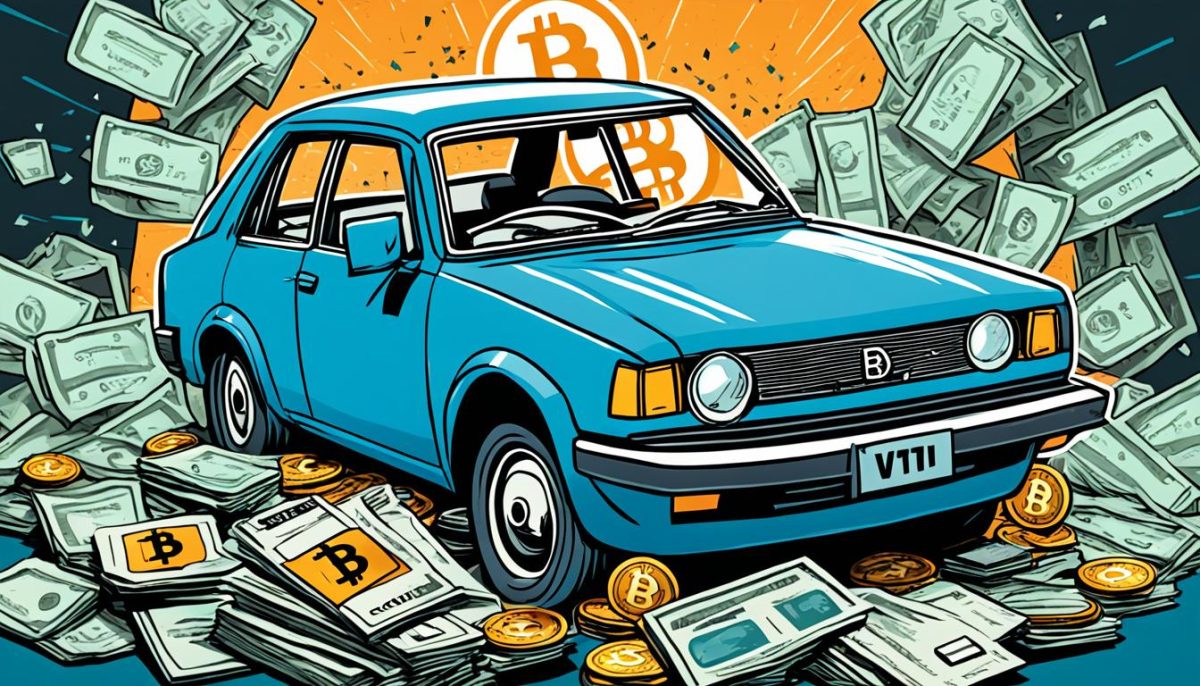As the automotive industry continues to evolve, it’s essential to explore the role of digital currencies, such as Bitcoin, in the car auction process. In this article, I’ll delve into the advantages and challenges of using Bitcoin compared to traditional payment methods in the context of car auctions, providing insights that can help both buyers and sellers navigate this shifting landscape.
The rise of Bitcoin has introduced a new way of conducting financial transactions, offering features like increased security, faster processing times, and global accessibility. In the car auction world, these advantages could potentially transform the bidding and payment experiences for all involved. At the same time, there are also challenges to consider, such as market volatility and the need for wider adoption and integration within the automotive industry.
By examining the pros and cons of utilizing Bitcoin in car auctions, I aim to provide a comprehensive understanding of how this digital currency can impact the future of the automotive industry and assist both buyers and sellers in making informed decisions about their payment preferences.
Embracing the Future: The Advantages of Bitcoin in Car Auctions
As the digital landscape continues to evolve, the integration of bitcoin into the car auction industry offers a glimpse into the future. Bitcoin, a revolutionary cryptocurrency powered by blockchain technology, presents several compelling advantages that make it an attractive payment option for car auctions.
Faster and More Secure Transactions
One of the primary advantages of using bitcoin in car auctions is the speed and security of transactions. Unlike traditional payment methods, which can take days to process, bitcoin transactions are verified and completed within a matter of minutes. This rapid settlement process not only enhances the overall efficiency of the auction process but also provides an added layer of security for both buyers and sellers.
Borderless and Global Reach
The decentralized nature of the bitcoin network allows for borderless and global access, a crucial factor in the car auction industry. Buyers and sellers from any part of the world can participate in car auctions, regardless of their geographical location, opening up a world of opportunities for international trade and collaboration. This global reach is particularly beneficial for car enthusiasts and collectors who may seek rare or specialized vehicles from across the globe.

“The integration of bitcoin into the car auction industry is a testament to the transformative power of blockchain technology. It’s not just about faster and more secure transactions; it’s about unlocking a world of possibilities for car enthusiasts and businesses alike.”
As the automotive industry continues to embrace the digital age, the advantages of using bitcoin in car auctions become increasingly compelling. From faster and more secure transactions to borderless and global reach, bitcoin offers a glimpse into the future of the car auction industry, empowering buyers, sellers, and the entire ecosystem alike.
Bitcoin vs. Traditional Payments Car Auction: Exploring the Challenges
While Bitcoin’s advantages in car auctions are undeniable, the cryptocurrency also faces unique challenges that must be addressed for its widespread adoption. From market volatility to regulatory concerns, navigating the integration of Bitcoin into the automotive industry requires a careful and strategic approach.
Market Volatility: The Bitcoin Rollercoaster
One of the primary concerns with using Bitcoin in car auctions is its inherent market volatility. The value of Bitcoin can fluctuate significantly within a short period, creating uncertainty and risk for both buyers and sellers. This unpredictability can make it difficult to price vehicles accurately and reliably, potentially leading to confusion and dissatisfaction among auction participants.
Regulatory Hurdles: Navigating the Legal Landscape
The regulatory landscape surrounding Bitcoin and other cryptocurrencies is constantly evolving, with varying degrees of acceptance and oversight from governments and financial institutions around the world. Car auction houses must navigate this complex regulatory environment, ensuring compliance with local laws and regulations while providing a seamless Bitcoin payment experience for their customers.
Adoption Challenges: Bridging the Gap
Despite the growing awareness and acceptance of Bitcoin, its adoption in the car auction industry remains relatively low. Educating both buyers and sellers on the benefits and usage of Bitcoin, as well as addressing any concerns or misconceptions, is crucial for driving wider acceptance and integration of the cryptocurrency within the automotive market.
| Challenge | Description | Potential Solutions |
|---|---|---|
| Market Volatility | Fluctuations in Bitcoin’s value can create uncertainty and risk for auction participants. | Implement price stabilization mechanisms, such as pegging Bitcoin payments to fiat currencies or offering price guarantees. |
| Regulatory Concerns | Varying regulatory frameworks for cryptocurrencies can complicate the integration of Bitcoin into car auctions. | Engage with regulators, legal experts, and industry associations to ensure compliance and develop clear guidelines for Bitcoin usage. |
| Adoption Challenges | Low awareness and acceptance of Bitcoin among auction participants can hinder its widespread adoption. | Conduct educational campaigns, provide user-friendly interfaces, and partner with cryptocurrency platforms to promote Bitcoin’s benefits. |
Overcoming these challenges will require a collaborative effort from car auction houses, Bitcoin enthusiasts, and industry stakeholders. By addressing market volatility, regulatory concerns, and adoption barriers, the automotive industry can unlock the full potential of Bitcoin and offer a more diverse and innovative payment experience for car buyers and sellers.

“The key to success in integrating Bitcoin into car auctions is finding the right balance between innovation and stability, ensuring a seamless and secure experience for all participants.”
Striking a Balance: Integrating Bitcoin into the Automotive Industry
As the automotive industry evolves, finding the right equilibrium between Bitcoin and traditional payment methods will be crucial. I believe that exploring potential hybrid solutions and strategies can help car auction participants leverage the benefits of Bitcoin while mitigating the challenges. By examining the future of payments in the automotive industry and the role of digital currencies like Bitcoin, we can navigate this transformative landscape effectively.
Integrating Bitcoin into car auctions offers numerous advantages, from faster and more secure transactions to borderless and global reach. However, we must also consider the practical realities of the industry and address the concerns surrounding Bitcoin adoption. A well-designed hybrid approach that combines the strengths of both traditional and digital payment methods can be the key to unlocking the full potential of this innovative technology.
I’m excited to see how the automotive industry will continue to adapt and evolve in the face of these emerging payment solutions. By striking the right balance, we can ensure that car auction participants can seamlessly integrate Bitcoin into their operations, while maintaining the reliability and familiarity of traditional payment methods. This dynamic integration will pave the way for a more efficient, secure, and globally accessible automotive ecosystem.